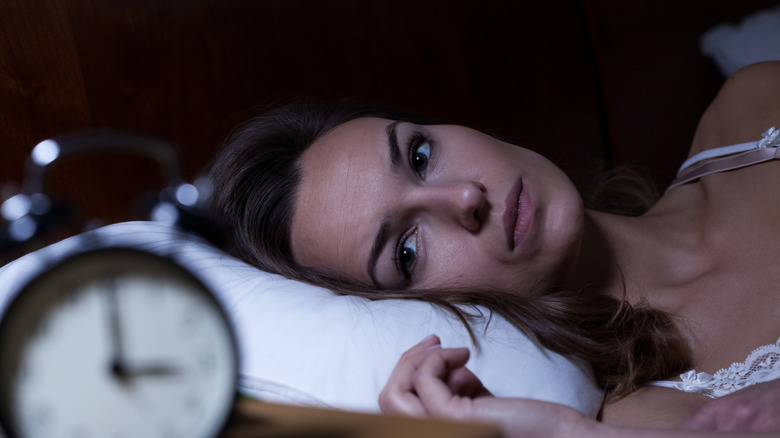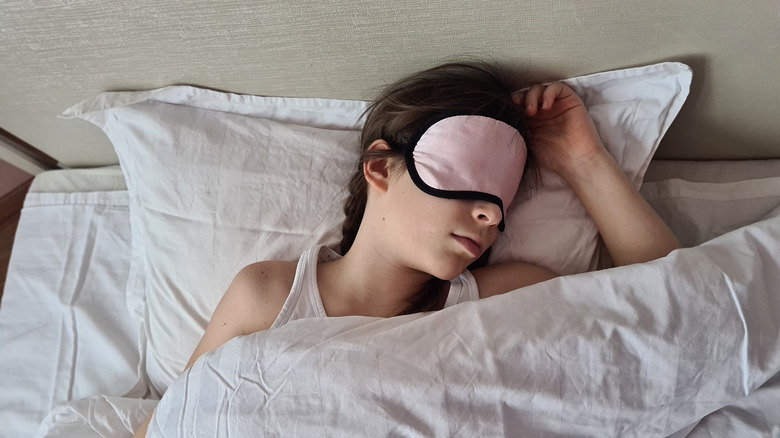Can Sleep Paralysis Kill You? What To Believe
If you've ever had the experience of feeling like you can't move your body, even though you want to, either right before falling asleep or as you wake up, you've had what's known as sleep paralysis. While it only lasts for a brief time, people report feeling anything ranging from anxiety to terror during an episode. For some, it can even create nervousness around going to sleep.
Pillow describes how people throughout history have attempted to understand this phenomenon, often ascribing it to spirits, witches, or demons holding the sleeper down or sitting on their chest. And, in modern times, some have even taken to blaming their nocturnal hallucinations on aliens.
However, while people experiencing sleep paralysis might feel in the moment like they are in danger, it can't actually kill you. The explanation for sleep paralysis is something much simpler and more innocuous than supernatural or extraterrestrial beings.
What causes sleep paralysis
While scientists don't fully understand what causes sleep paralysis, it occurs when you are coming out of or going into rapid eye movement (REM) sleep, the sleep phase when dreaming occurs. During this phase, your brain keeps you safe by sending messages to your body to keep you from moving around and acting out your dreams. Sleep paralysis is simply you becoming aware of this fact when you aren't fully awake yet.
According to Health, certain factors can make you more prone to sleep paralysis. It is often linked to poor sleep quality, especially chronic sleep deprivation. It's more common in shift workers and people with insomnia, obstructive sleep apnea, or narcolepsy. Mental health conditions such as PTSD, anxiety, and bipolar disorder also increase risk. Other contributing factors include substance use, certain medications (like antidepressants and ADHD drugs), and sleeping on your back. Genetics may also play a role, and episodes often begin in adolescence. Sleep paralysis is more frequently reported among people of Asian or African descent. Irregular sleep schedules, caffeine, alcohol, and jet lag can also heighten the likelihood of episodes.
What you can do about sleep paralysis
To help prevent sleep paralysis, Harvard Medical School says to focus on improving your sleep hygiene and managing underlying health conditions. Aim for seven to nine hours of sleep each night and stick to a consistent sleep schedule, even on weekends. Create a calm, comfortable sleep environment — keep the room cool, dark, and quiet, and use bedding that supports your body. Avoid screens, caffeine after 2 p.m., nicotine, and alcohol in the evening, as these can all disrupt your sleep cycle. Relax before bed with calming activities like reading or taking a warm bath. If you usually sleep on your back, try changing positions, as back sleeping is linked to sleep paralysis. Reducing stress, especially at bedtime, can also make a big difference. If you have a sleep or mental health disorder like narcolepsy, anxiety, or bipolar disorder, working with a healthcare provider to manage it may reduce or eliminate sleep paralysis episodes.
While an episode of sleep paralysis will end on its own, it is safe if someone happens to wake you by touching you or talking to you. However, since you are not able to move during the episode, you won't be able to provide them with any indication that you would like them to try.


